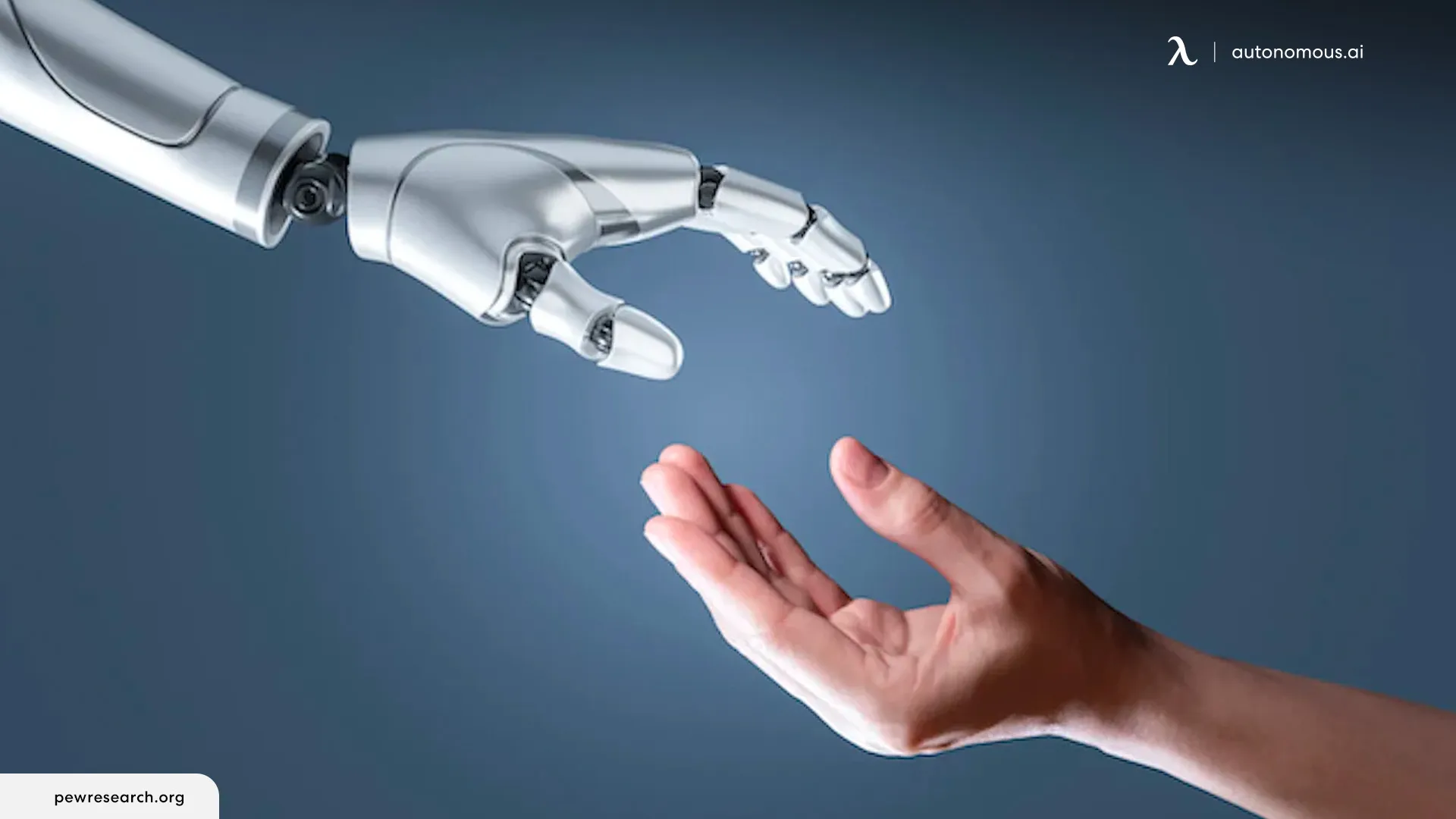
AI Agents vs. AI Assistants: Definitions, Differences, and Applications
Table of Contents
Artificial intelligence continues to revolutionize industries and daily life. Among its most transformative applications are AI agents and AI assistants. Both utilize advanced technology, yet their roles and capabilities are uniquely distinct.
AI agents autonomously tackle complex, multi-step tasks, while AI assistants focus on user interaction, simplifying everyday tasks. This blog will provide a deep dive into what AI agents and AI assistants are, how they work, their differences, applications, and future trends.
1. What Are AI Agents?
AI agents are autonomous systems designed to operate with minimal human intervention. They make decisions, learn from past interactions, and adapt to dynamic environments. Unlike traditional AI systems, agents are goal-driven and capable of managing complex workflows, making them indispensable for industries requiring high efficiency and adaptability.
1.1. Key Characteristics of AI Agents
- Autonomy: Performs tasks independently without constant supervision.
- Adaptability: Learns and evolves using historical data and real-time inputs.
- Goal-Oriented: Focuses on completing specific objectives within dynamic environments.
1.2. Types of AI Agents
- Reactive Machines:
Reactive machines are the simplest type of AI agents, focusing only on current data without memory or learning capabilities. They are ideal for singular, well-defined tasks, such as chess-playing programs that calculate moves based solely on the current board state. These reactive approaches are foundational, contrasting with more advanced models like autonomous AI agents, which can handle more complex, dynamic tasks.
- Limited Memory Agents:
By incorporating short-term memory, limited memory agents improve decision-making based on recent information. For instance, self-driving cars utilize this ability to process real-time traffic conditions and navigate safely. Modern AI models like Qwen showcase how leveraging memory can significantly enhance adaptability and efficiency in real-world scenarios.
- Theory of Mind Agents:
These advanced agents simulate human-like understanding by recognizing emotions, intentions, and mental states. While still experimental, they show promise in fields such as eldercare, where understanding emotional cues is essential. For example, research into models like Alpaca and Llama demonstrates strides toward creating AI capable of nuanced interactions.
- Self-Aware Agents:
Self-aware agents represent the most ambitious vision of AI development. These hypothetical systems could one day recognize their existence and make deeply contextual decisions. As researchers explore this frontier, comparisons between models like Llama and Mistral highlight the ongoing quest to push AI capabilities further.
1.3. Applications of AI Agents
AI agents are widely used in:
- Logistics: Optimizing supply chain operations to minimize costs and delays.
- Healthcare: Recommending treatments by analyzing patient data.
- Finance: Managing algorithmic trading and fraud detection.
- Customer Support: Automating responses to enhance efficiency and customer satisfaction.

2. What Are AI Assistants?
AI assistants are interactive tools designed to enhance productivity by executing specific user commands. They rely on user input to function, making them accessible and user-friendly for everyday tasks.
Unlike AI agents, assistants do not operate autonomously. Instead, they excel at simplifying tasks like managing schedules, setting reminders, and answering questions.
2.1. Examples of AI Assistants
- Voice Assistants: Siri, Alexa, and Google Assistant are examples of widely-used AI tools that provide hands-free solutions for everyday queries and tasks.
- Productivity Tools: Calendar managers, email sorting systems, and virtual planners help streamline workflows. Explore more about best AI tools.
- Smart Home Systems: AI assistants like Alexa or Google Home control appliances, lights, and thermostats, offering convenience and energy savings.
2.2. Applications of AI Assistants
AI assistants enhance productivity and accessibility in various ways:
- Managing personal and professional schedules efficiently.
- Offering real-time answers to queries.
- Supporting accessibility for individuals with disabilities. For instance, AI tools for students enable better learning support and accessibility features tailored to educational needs.
- Assisting with creative tasks using free AI image generators for content creation.
- Simplifying content creation for educators with AI tools for teachers to streamline workflows.
- Improving marketing strategies with AI tools for marketing to target audiences effectively.
- Streamlining content with paraphrase AI tools for precise writing and summarize AI tools to condense lengthy materials.
- Empowering developers to write and debug code effectively using AI tools for coding to simplify complex tasks.
AI assistants are vital for both personal and professional contexts, providing tools that adapt to user needs and enhance efficiency across various applications.
![]()
3. Key Differences Between AI Agents and AI Assistants
While AI agents and assistants share foundational technologies, their functionalities diverge significantly.
| Aspect | AI Agents | AI Assistants |
|---|---|---|
| Purpose | Perform tasks autonomously. | Execute tasks based on user commands. |
| Learning | Adapts through memory and feedback. | Operates within predefined parameters. |
| Applications | Handles complex workflows. | Simplifies everyday tasks. |
| Examples | Self-driving cars, supply chain bots. | Siri, Alexa, Google Assistant. |
AI agents shine in complex environments requiring adaptability, while AI assistants focus on enhancing user experience through guided interactions.
4. How AI Agents and AI Assistants Work Together
AI agents and assistants often complement each other, creating systems that balance automation and accessibility. In industries like healthcare, customer service, and business operations, their synergy drives efficiency and innovation.
Examples of Collaboration
- Customer Service: AI agents analyze queries and propose solutions, while assistants communicate responses directly to customers.
- Healthcare: Agents process patient data to recommend treatments, while assistants remind patients of appointments or medication schedules.
- Business Operations: Agents optimize workflows, identify inefficiencies, and generate reports. Assistants schedule meetings, notify team members, and manage real-time updates.
5. Pros and Cons
| Aspect | AI Agents | AI Assistants |
|---|---|---|
| Advantages | - Operates autonomously, reducing the need for constant supervision. | - User-friendly and highly accessible, making it easy for anyone to use. |
| - Handles complex, multi-layered tasks with efficiency. | - Simplifies repetitive actions, such as managing schedules or sending reminders. | |
| - Continuously improves through machine learning and feedback. | - Integrates seamlessly with consumer devices and platforms. | |
| - Goal-oriented, ensuring task completion with minimal errors. | - Enhances productivity by executing commands quickly and accurately. | |
| Challenges | - Requires advanced infrastructure, such as high computational resources and memory. | - Limited to predefined functions and lacks the autonomy needed for complex, independent tasks. |
| - May be resource-intensive, posing challenges for smaller organizations. | - Relies on constant user input to operate, reducing its utility in autonomous environments. | |
| - Complexity in development and deployment, especially for custom applications. | - Struggles to adapt dynamically to unforeseen scenarios compared to agents. |
6. AnonAI: Where AI Agents Meet Assistants
AnonAI offers a hybrid approach, blending the autonomy of AI agents with the interactivity of AI assistants. This privacy-first platform ensures data security while delivering versatile AI solutions.
- Privacy-Focused Design: Data remains local, eliminating risks like breaches or unauthorized access. For businesses and individuals prioritizing security, solutions like private AI focus on total control over sensitive information.
- Multimodal Capabilities: Powered by Llama 3.2 Vision, AnonAI combines text and visual processing, making it ideal for automated workflows and user-driven tasks. Acting as a private AI image generator, it offers secure, customizable solutions tailored for professional and creative needs.
- Custom AI Agents: Users can create tailored agents while maintaining assistant-level interaction for seamless functionality. Businesses can benefit from utilizing an AI chat tool to enhance workflows and customer engagement.
AnonAI exemplifies how the strengths of AI agents and assistants can merge to enhance productivity and innovation. Its robust platform supports secure, feature-rich interactions, making it a leading choice for private AI chat that prioritizes privacy and performance.

7. FAQs
What is an AI agent?
An AI agent is an autonomous system designed to perform tasks, make decisions, and adapt to its environment without constant human input.
What is an AI assistant?
An AI assistant is a user-focused tool that executes specific tasks based on commands, offering convenience and productivity.
Can AI systems combine agent and assistant functionalities?
Yes, hybrid systems like AnonAI integrate the autonomy of agents with the interactivity of assistants, offering versatile applications.
Which industries benefit most from AI agents and assistants?
Healthcare, logistics, finance, and customer service leverage AI agents for backend automation and assistants for user-facing tasks.
Can AI assistants work without an internet connection?
Some AI assistants, like those integrated into smart devices, require an internet connection to access cloud-based features. However, certain offline-capable AI assistants can perform basic tasks like setting alarms or reminders without internet access.
Are AI agents and assistants secure to use?
Security depends on the platform. Cloud-based AI solutions may pose privacy risks, whereas on-premise or private AI systems, such as AnonAI, ensure data remains secure and local.
What’s the difference between voice-controlled AI assistants and text-based ones?
Voice-controlled assistants interact via spoken commands and responses, while text-based assistants operate through written prompts and outputs. Both have their unique use cases depending on the context.
Conclusion
AI agents and AI assistants are reshaping industries and daily life in complementary ways. Agents autonomously handle complex, multi-layered processes, while assistants focus on simplifying user interactions and enhancing productivity. Together, they form a powerful ecosystem, paving the way for smarter, more efficient workflows and innovations.
Stay connected with us!
Subscribe to our weekly updates to stay in the loop about our latest innovations and community news!
Interested in a Link Placement?
Spread the word
.svg)



/https://storage.googleapis.com/s3-autonomous-upgrade-3/production/ecm/230914/bulk-order-sep-2023-720x1200-CTA-min.jpg)

/https://storage.googleapis.com/s3-autonomous-upgrade-3/production/ecm/230824/image_2Qy8RvXi_1692156220697_raw-0545aba5-ec71-4736-8a0d-b290d04efd58.jpg)